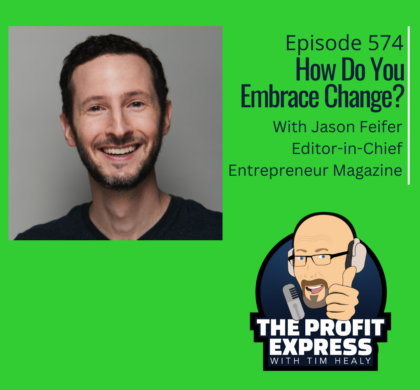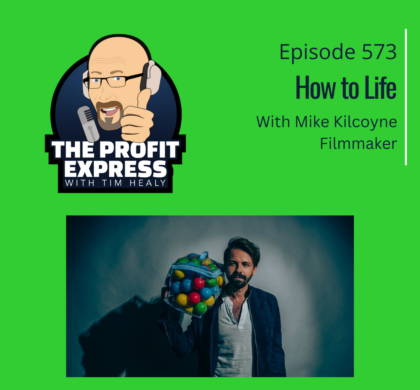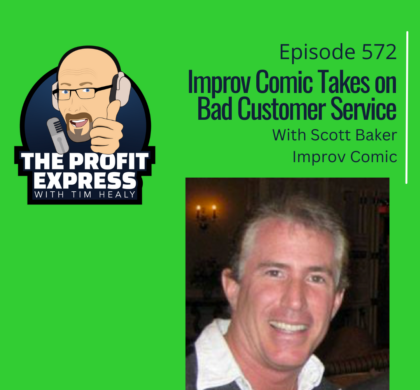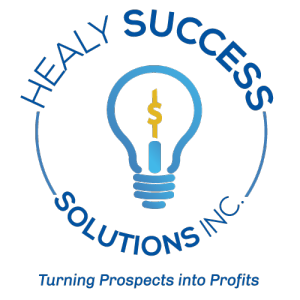Overcoming Common Objections in Sales

by Tim Healy
As a sales performance coach I am absolutely floored how many veteran sales people still get caught like a Deer in Selling Headlights when they hear an objection.
There should be absolutely no shock when a prospect or client throws an objection your way. You know it’s going to happen. It is just a matter of which objection and when.
Here is a list of the most common objections in sales we have all heard countless times before.
- The Classic “Let me think about it.”
- The Blowoff “I’ll call you next week, next month…”
- The Posturing “That’ is too expensive.”
- The BS “I have to show my wife, my boss…”
When you hear one of these ditties, now is not the time to freeze.
What is a sales objection?
Let’s look at what an objection really is. Sometimes it can be a legitimate question regarding your sales offer/presentation. When the prospect is asking a question based on some uncertainty, your clarification can typically resolve the issue and let you know that it really isn’t an objection to prevent the sale after all.
However, more times than not an objection is a mechanism the prospect uses to give themselves the upper hand. There shouldn’t be any surprises here – YOU use the exact same objections when YOU are in the prospect’s seat.
Why do prospects object in sales?
Please never take an objection personally. Objections are just one of the tools a prospect or client uses in the sales process, and there are several reasons why prospects object:
- They don’t want to have to tell you NO. People hate confrontation and would rather blow you off than look you in the eye and tell you NO.
- They want to get you nervous that you are losing the sale. Why? It is the best way to get a salesperson to lower price or give things up.
- Perhaps the prospect just wants your quote as information they can use to gain leverage over their current vendor – AKA your competition.
- Sometimes it is as basic as they just want to WIN something like 10% off or free shipping.
Here is one of the biggest challenges to overcoming objections.
Sales people typically start to overcome an objection once they hear it for the first time, as if they didn’t know it was coming. Maybe you are shocked they are saying you are too expensive, or you are stunned that they want to think about it.
Here is the paramount problem – if you wait to address the objection at the moment you hear it – then it will be so much harder to overcome it.
This is where qualifying the prospect is mission critical.
How can you overcome objections in sales?
The more you know about a prospect’s W.H.Y. then the more equipped you will be to identify potential objections before they start.
What is W.H.Y.? Why is your new best friend for overcoming objections! W.H.Y. stands for…
Who is making the decision?
How are they making the decision?
Y is this purchase important to them?
Here are some great questions to uncover WHY you are talking in the first place. The prospect’s answers to these questions will hold the secret to those objections that are right around the corner.
Who is making the decision?
Here you will find out who is making the decision – please keep in mind there is ALWAYS more than one person. Here’s what I say…
Who: “I have often found that with decisions like this – people have a partner, spouse, sibling, or their CPA helping them make a decision like this. Who would that be for you?
How: “I am curious what factors are YOU using to decide if my product/service is right for you?” Explore everything here. Get them talking about price, budget, delivery, downtime, terms, warranties, when they want to decide and if they are looking at any other vendors.
Sales people often resist asking if they are looking at other vendors because they are afraid. The reasoning is what if they aren’t looking at someone. Are you encouraging the prospect to look? My response is – if a prospect wants to look go right ahead. I am confident – I just want to know now. You also want to make sure you ask WHEN they will make a decision.
Remember we are trying to avoid being surprised. Finally, you get to the core of the decision-making process with Y! Y is the clincher. It helps you understand how important this decision really is or is not.
Y: Why is this purchase important to them? Is it something they would LIKE to do or MUST do?
The key is to find out the answers to W.H.Y. before you present your solution. If you wait to find out the answer to W.H.Y. after you present, you are too late. They want to hear your offer. They are hoping it can solve their problems, make their life easier or more enjoyable. Qualify BEFORE you present!
If you qualify upfront with W.H.Y. you will be better prepared to Win the Battle for Business and not chase prospects and their “Let me think about it” excuses.
Recommended Posts

How Do You Embrace Change?
27 Mar 2024 - Podcasts

How to Life
20 Mar 2024 - Podcasts

Improv Comic Takes on Bad Customer Service
28 Feb 2024 - Podcasts

Tim:
Love the article and the emphasis on “preparing to compete”, profiling and the word BEFORE.
Enjoy the summer…talk soon
Dan